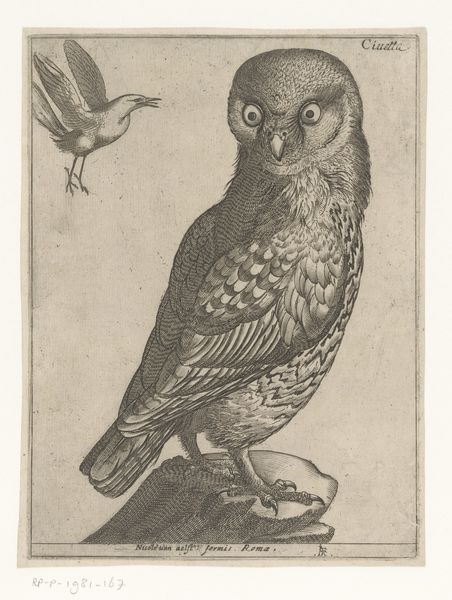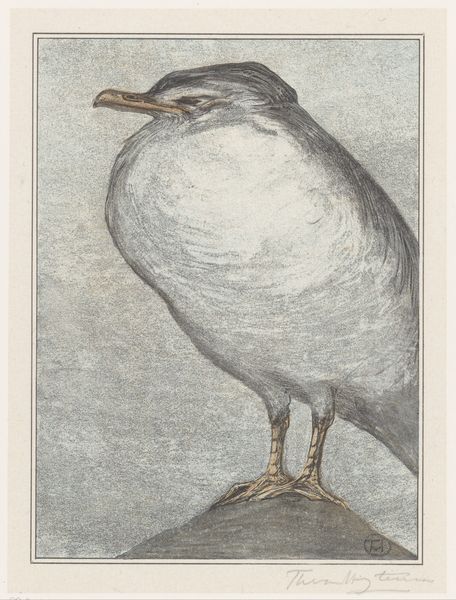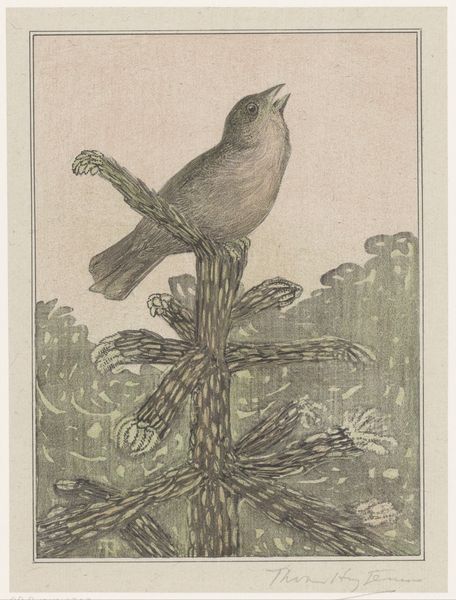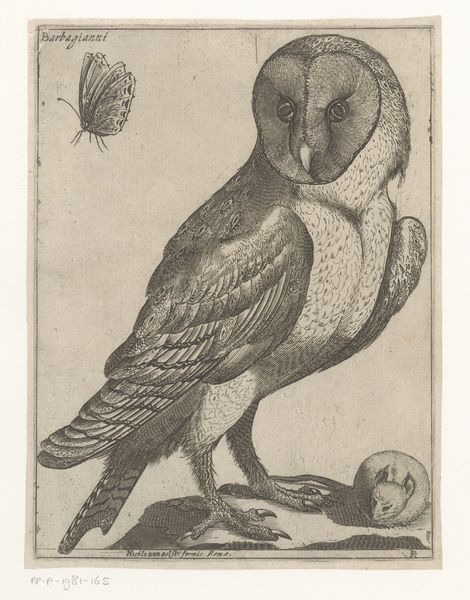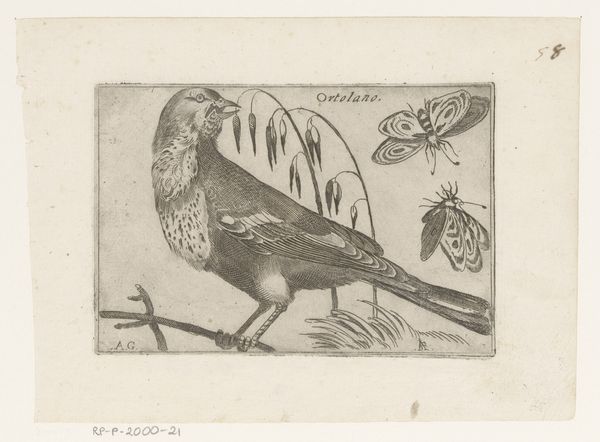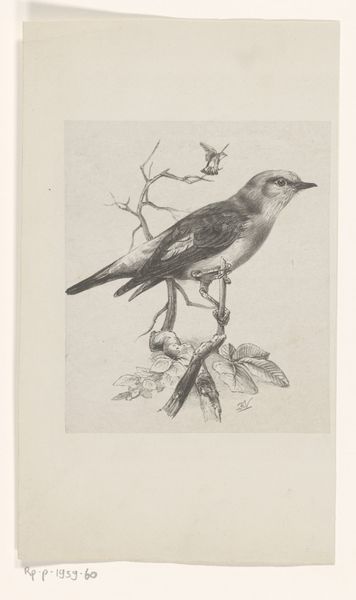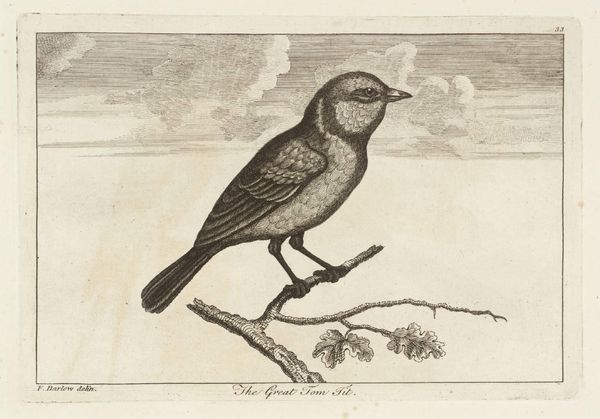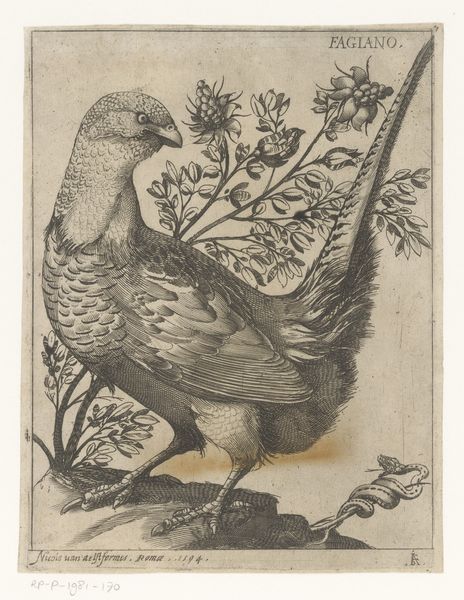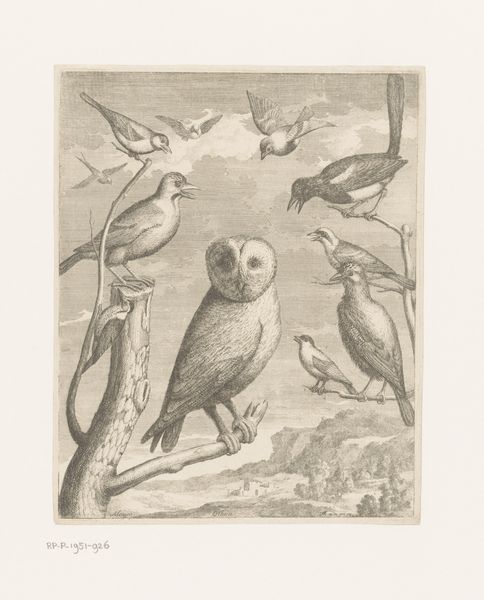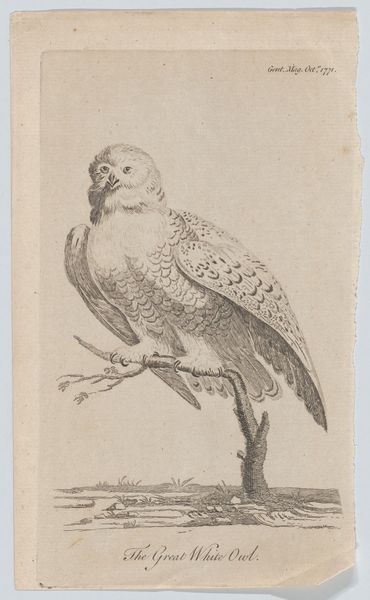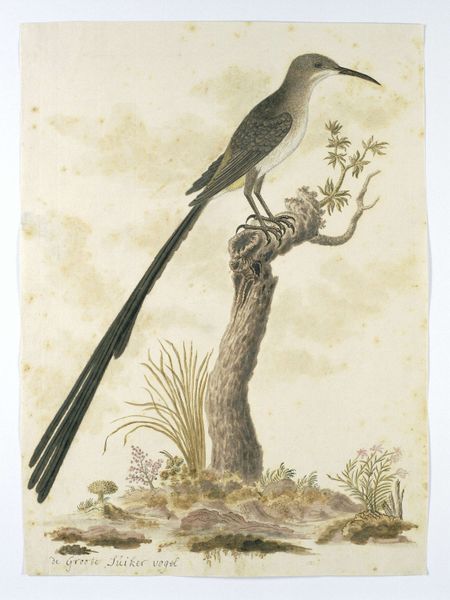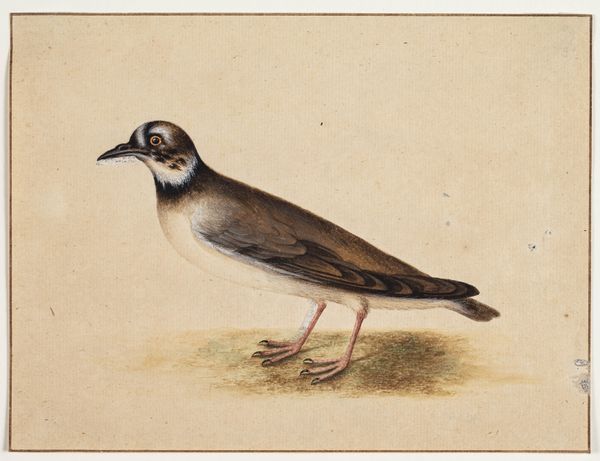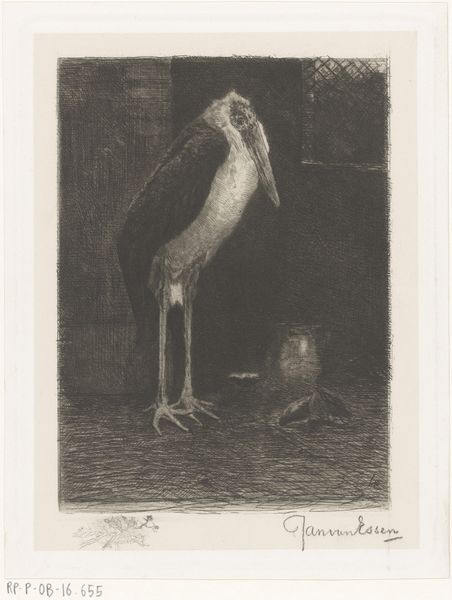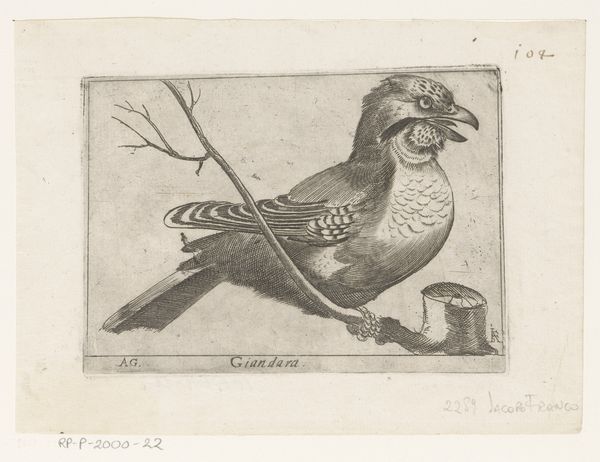
drawing, pencil
#
drawing
#
pencil sketch
#
landscape
#
caricature
#
botanical illustration
#
pencil drawing
#
pencil
#
watercolour illustration
#
botanical art
Dimensions: height 222 mm, width 168 mm, height 425 , width 302
Copyright: Rijks Museum: Open Domain
Editor: We're looking at "Kwikstaart op paal," or "Wagtail on a Pole," a pencil drawing by Theo van Hoytema, created between 1878 and 1910. It's got a rather serene feel, the little bird perched on a weathered post against a soft landscape. How do you interpret this piece? Curator: Well, beyond its immediate appeal, I see a potent commentary on humanity's relationship with nature. The wagtail, rendered with such delicate detail, is juxtaposed against a post, a marker of human intervention. The landscape fades in the background; how does the encroachment of industrialisation alter and define that supposedly serene relationship? Editor: That's an interesting point. I hadn't considered it beyond a simple nature study. Curator: Exactly! Hoytema, working during a time of immense social and environmental change in the Netherlands, would've witnessed first-hand the transformation of rural landscapes. What does it mean to “own” nature in the first place? The pole here acts as a claim, an assertion. The question then becomes, does this wagtail have a “right” to stand here as much as any industry making a claim on the land around it? Editor: So you're saying this seemingly simple drawing subtly critiques that shift in power? Curator: Precisely. And more broadly, this raises intersectional issues; the environment isn’t something “out there,” separate from us. Environmental destruction disproportionately impacts marginalised communities, who rely more on the natural resources. So, in that light, this isn't just about a bird on a post. Editor: Wow, I hadn't thought of it that way at all. This drawing has far more layers than I initially perceived. Curator: It does! The power of art lies in its ability to reflect the complexities of our world, both then and now. Editor: I will definitely remember that from now on. Thanks.
Comments
No comments
Be the first to comment and join the conversation on the ultimate creative platform.
